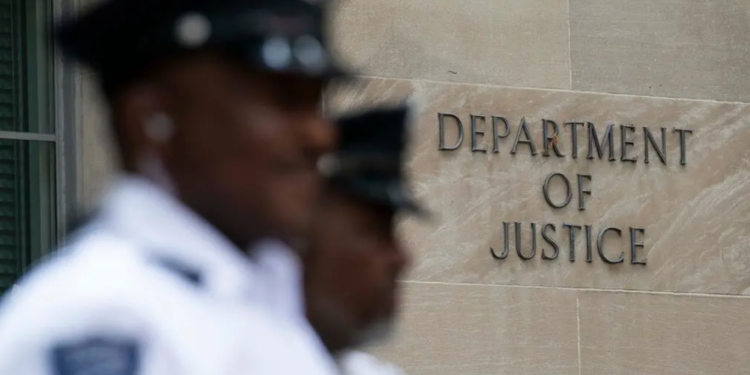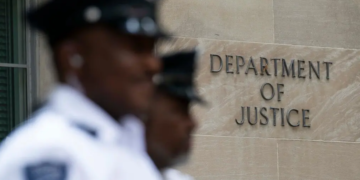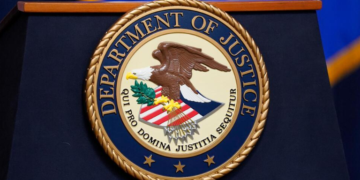May 21, 2025 Story by: Publisher
The article now includes a statement from the Department of Justice Civil Rights Division and the Legal Defense Fund.
In a significant change to its oversight approach, the U.S. Department of Justice has named several cities and law enforcement agencies affected by a recent decision to scale back or close police accountability investigations that were launched under the Biden administration.
Among the jurisdictions named are Louisiana State Police, as well as the police departments in Louisville, Kentucky; Memphis, Tennessee; Minneapolis, Minnesota; Mount Vernon, New York; Oklahoma City, Oklahoma; Phoenix, Arizona; and Trenton, New Jersey.
“Today’s announcement is an unprecedented abandonment of the Department of Justice’s responsibility to enforce civil rights laws and its obligation to protect communities from discriminatory police abuse,” Jin Hee Lee, Legal Defense Fund (LDF) Director of Strategic Initiatives stated in a press release. “The findings of these investigations have depicted a litany of systemic harms, from wanton violence, sexual misconduct, unlawful stops, searches, and arrests, and discriminatory policing. By abandoning its legal obligation to remedy this unlawful conduct, DOJ is tacitly condoning it. Today, DOJ is signaling to law enforcement agencies that they are above the law. The choice to dismiss these investigations and move to withdraw from agreements is a rejection of the voices of millions of people that clamored for justice following the police killings of George Floyd, Breonna Taylor, and the police abuse of countless Black people. The Department has relinquished its mandate to impartially enforce civil rights laws regardless of presidential administration and has made clear that it is subject to political winds. Today’s decision to abandon police accountability undermines DOJ’s legitimacy, credibility, and its legacy. We urge judges to hold the Department and all relevant law enforcement agencies accountable.”
The affected investigations were originally launched under the DOJ’s Civil Rights Division as part of broader efforts to address patterns of unconstitutional policing and civil rights violations. These reviews often led to consent decrees or reform agreements aimed at reshaping law enforcement practices and restoring community trust.
While the department has not publicly detailed the rationale behind each dismissal, legal experts suggest the shift reflects a policy recalibration under the current administration, potentially narrowing the scope of federal involvement in local police reform.
Overboard police consent decrees divest local control of policing from. communities where it belongs,” Assistant Attorney General Harmeet K. Dhillon, head of the Department of Justice’s Civil Rights Division released in a statement. “Turning that power over to unelected and unaccountable bureaucrats, often with an anti-police agenda. Today we are ending the Biden Civil Rights Division’s failed experiment of handcuffing local leaders and police departments with factually unjustified consent decrees
Despite the DOJ’s withdrawal, officials in Minneapolis and Louisville have expressed their commitment to continue implementing the proposed reforms independently. Minneapolis Mayor Jacob Frey affirmed that the city would proceed with every reform outlined in the consent decree. Additionally, the Minnesota Department of Human Rights has an existing state-level consent decree with Minneapolis, which remains in effect.
In Louisville, city officials have indicated plans to implement the reforms through local mechanisms. Mayor Craig Greenberg and other leaders have committed to enacting the changes without federal oversight, emphasizing local accountability and control.
The DOJ’s decision comes just days before the fifth anniversary of George Floyd’s death and reflects a broader shift in the department’s approach to civil rights enforcement under the current administration. The move has drawn criticism from civil rights advocates, who argue that federal oversight is crucial for ensuring meaningful police reform, while supporters contend that such mandates are costly and infringe upon local governance.
As the DOJ steps back from these agreements, the focus now turns to how Minneapolis and Louisville will navigate the path forward in their efforts to reform policing practices and restore public trust.
Source: The Washington Post / Axios / Reuters

















